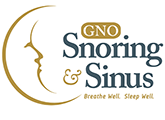Suffering from sinus issues can be a nightly battle, turning the sweet promise of slumber into a struggle that leads to restless nights and drowsy days. For those wrestling with the complexities of sinus discomfort, understanding the relationship between sinus issues and sleep is the first step toward finding a path to undisturbed rest. Here, we explore how sinus conditions like allergies, infections, and congestion can impact the quality of your sleep and suggest possible solutions to ensure that you’re not just getting through the night, but truly benefiting from it.
The Impact of Sinus Issues on Sleep
At its core, the impact of sinus issues on sleep is an issue of breathing. The complications that arise from nasal congestion, such as reduced airflow and the increased likelihood of mouth breathing, can lead to a range of disturbances. These disturbances typically involve snoring, which in its own right, can be a sign of sleep apnea, a serious condition that involves interrupted breathing during sleep.
When discussing sleep apnea, it’s essential to recognize that not all cases result from nasal obstruction, but a significant portion does. Sleep apnea, alongside other conditions such as insomnia, sleep paralysis, and restless legs syndrome, is often aggravated by sinus issues. Furthermore, the discomfort caused by sinus pressure or pain can prevent individuals from achieving the deep sleep that is necessary for waking up feeling refreshed. This pattern of interrupted sleep plays a role in both physical health and mental acuity, impacting daily life on multiple levels.
The Sinus-Sleep Connection Unpacked
Many sinus symptoms typically worsen when you lie down. This phenomenon is explained by the fact that when you’re upright, gravity pulls fluids from your head. When you recline, that drainage can become more sluggish, resulting in increased sinus pressure and congestion. This increase in mucosal production and inflammation narrows the nasal passages, making it more difficult to breathe, especially through the nose.
The inability to breathe through the nose forces individuals to rely on their mouth for breathing, leading to dryness of the throat and mouth, which can result in snoring. Mouth breathing also bypasses natural filtration processes, which can lead to irritation of the tonsils and adenoids, further complicating matters for those with chronic sinus conditions.
For those who may have underlying sleep disorders, such as sleep apnea, the presence of sinus issues exacerbates the problem. Even individuals without a diagnosed sleep disorder can experience disordered breathing during sleep, known as UARS (Upper Airway Resistance Syndrome), which can be strongly correlated with sinus issues.
Addressing Sinus Issues for Better Sleep
The good news is that there are a variety of treatments and lifestyle adjustments that can help you manage sinus issues and achieve better quality sleep. These include:
Over-the-Counter Solutions
Nasal saline rinses, decongestants, and antihistamines are easily accessible and can provide temporary relief from sinus congestion. However, it’s important to use these medications as directed, as over-reliance on decongestant sprays, for example, can worsen symptoms in the long run.
Natural Remedies and Lifestyle Changes
Humidifiers, maintaining good hydration, elevating your head while sleeping, and other home remedies can also be effective. Humidifying the air can keep the nasal passages moist, making it easier for mucus to drain. Staying hydrated thins mucus, promoting better drainage. Elevating the head with extra pillows or through the use of an adjustable bed can aid in gravitational drainage.
Seeking Professional Care
If your sinus issues are persistent or severe, it’s crucial to consult with a healthcare professional. They can prescribe more potent medications, such as corticosteroids for inflammation and antibiotics for bacterial infections. For individuals with chronic sinus issues, long-term management through immunotherapy or sinus surgery may be recommended.
By addressing your sinus issues, you are taking a step toward reclaiming peaceful sleep. Understand the role that sinuses play in your body’s structure and natural functions. By becoming more knowledgeable about the conditions that affect your sinuses, you can better advocate for your sleep health.
If you suffer from persistent sinus concerns, contact the office of GNO Snoring & Sinus today. With the right care, you can take control of your sleep and well-being.

